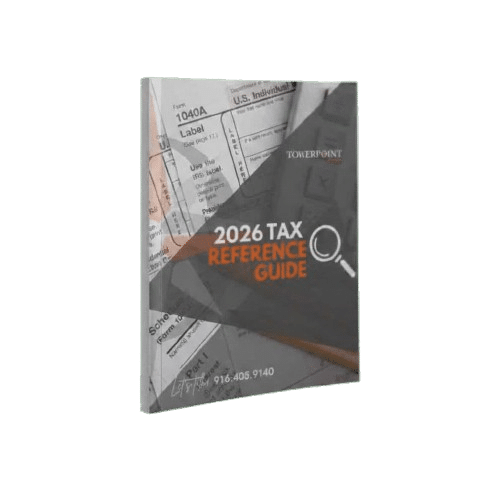What Does It Really Mean to Retire Early?
To retire early means stepping away from traditional work before reaching the normal retirement age, typically defined as between 65 and 67. Whether you aim to leave your career behind at 55, 50, or even 45, early retirement is about more than just exiting the workforce. It’s about achieving financial independence and gaining the freedom to live life on your own terms.
For high-net-worth individuals, business owners, and professionals navigating major life events, learning how to retire early often starts with a simple question: how much money is enough? But the real question is deeper, how can I retire early without sacrificing my lifestyle, legacy, or peace of mind?
Is Early Retirement Realistic for You?

Early retirement is attainable, but it’s not a one-size-fits-all goal. Your financial life, health care needs, and retirement goals all play a role in determining your retirement date and lifestyle. That’s why working with a fiduciary financial advisor who understands the complexities of your personal and professional journey is crucial.
Questions to Consider Before You Retire Early
- What are your projected annual expenses, and how will they change over time?
- Are your retirement savings and investments positioned for a long retirement?
- How will you access your retirement income before age 59½ without triggering early withdrawal penalties?
- Do you have a strategy for managing health insurance and out-of-pocket health care costs?
These aren’t just financial questions, they’re life planning questions that deserve thoughtful answers from a qualified financial professional.
Building the Financial Foundation to Retire Early
One of the first steps in planning how to retire early is determining your ideal retirement nest egg. A common rule of thumb is the 25x rule: multiply your projected annual expenses by 25 to calculate how much you need to save. However, this rule is based on a 4% withdrawal strategy and assumes retirement at a normal retirement age.
For early retirement, a more conservative estimate, 30x to 33x your annual expenses, is often recommended. This takes into account inflation, market volatility, longer life expectancy, and the need for tax advantaged withdrawal strategies.
Maximize Your Savings Rate
Achieving financial independence means saving aggressively. A high savings rate, often 30% to 50% or more of your annual income, is typically necessary to retire early. Here’s how to make it work:
- Maximize contributions to 401(k), Roth IRA, and other tax advantaged retirement accounts
- Take full advantage of employer match programs
- Save into taxable brokerage accounts for flexibility
- Use a health savings account (HSA) for tax advantaged health care savings
Tax advantaged accounts like a Roth IRA or HSA provide long-term benefits that align well with early retirement strategies, including potential tax free withdrawals.
Invest for a Long Retirement
Early retirees may need their retirement plan to last 40 years or more. Investing involves risk, but a well-diversified portfolio with a strong equity component is key to long-term growth. Don’t overlook the importance of asset location, placing the right investments in the right accounts can boost after-tax returns.
Working with an SEC registered investment adviser like Towerpoint Wealth ensures your investment strategy is tailored to your retirement goals, risk tolerance, and timeline.
Accessing Retirement Income Before 59½

Traditional retirement accounts often penalize withdrawals before 59½, making access to funds a challenge for those who retire early. Fortunately, there are several strategies to bridge the gap.
Penalty-Free Withdrawal Strategies
- Substantially Equal Periodic Payments (SEPP): Allows early access to IRA funds if taken as consistent, IRS-approved distributions
- Roth IRA Conversion Ladder: Convert traditional IRA assets into Roth IRA accounts and withdraw contributions tax free after five years
- Rule of 55: Withdraw from a 401(k) plan without penalty if you separate from your employer after age 55
- Taxable Brokerage Accounts: Provide liquidity and flexibility for early retirees
These withdrawal strategies must be carefully planned to avoid early withdrawal penalties and unexpected tax liabilities. A financial advisor or tax advisor can help structure these plans within the boundaries of current IRS rules and regulations.
Planning for Health Insurance and Health Care Costs
One of the biggest financial challenges for those who retire early is managing health care. Without access to employer-sponsored health insurance and before becoming eligible for Medicare at age 65, early retirees must explore alternative options.
Coverage Options Before Medicare
- ACA Marketplace Plans: Available with subsidies depending on income level
- COBRA: Temporary extension of employer coverage, typically for 18–36 months
- Private Insurance: Often more expensive, but offers more flexibility
- Health Sharing Ministries: Alternative models for healthy individuals and families
A health savings account is a powerful tool in early retirement planning. It allows for tax free contributions, growth, and withdrawals when used for qualified health expenses. HSAs can be used to supplement retirement income and offset rising health care costs.
Lifestyle and Psychological Readiness

Beyond the numbers, early retirement involves a shift in lifestyle, identity, and purpose. Many people underestimate the impact of leaving a structured work environment and the emotional adjustment that follows.
Considerations Beyond the Financial
- Will you pursue a part time job or passion project?
- How will you maintain social engagement and mental stimulation?
- What will your daily and annual routines look like?
- Are you emotionally ready to stop working?
For many, the best path is a hybrid approach, often called Barista FIRE, where retirees work part-time to maintain a sense of purpose while covering key expenses like health insurance.
Avoiding Common Pitfalls
Even with the best retirement plan, early retirees can fall into traps that compromise their financial future. Common mistakes include:
- Underestimating retirement budget or health expenses
- Relying too heavily on past performance or optimistic market assumptions
- Failing to factor in taxes, inflation, and sequence of returns risk
- Ignoring changes to social security benefits or policy shifts
A comprehensive financial planning process led by a credentialed financial professional helps you stay on course and adjust as needed.
How Towerpoint Wealth Can Help You Retire Early

Towerpoint Wealth is a fiduciary, SEC registered investment adviser dedicated to helping clients achieve their financial goals. If your goal is to retire early, we’ll help you craft a custom retirement plan that aligns with your lifestyle, values, and legacy goals.
From optimizing your retirement accounts and investment strategy to developing a withdrawal plan and managing tax advantaged accounts, we are here to be your financial life partner. Our wealth management approach integrates financial planning, legal or tax advice, retirement income optimization, and proactive strategy adjustments.
Schedule a no-obligation consultation today and let’s talk about how we can help you retire early, and stay retired.
Frequently Asked How Do I Retire Early Questions
How Much Money Do I Need To Retire Early?
It depends on your lifestyle and retirement budget. Many early retirees aim to save 30 to 33 times their annual expenses to account for a long retirement and market variability.
Can I Access My Retirement Accounts Before 59½?
Yes. Strategies like Roth IRA conversion ladders, SEPP, and 401(k) Rule of 55 can provide access without early withdrawal penalties. Consult a financial advisor to evaluate your best options.
What About Health Insurance Before Medicare?
Options include COBRA, ACA marketplace plans, or private insurance. A health savings account can help cover out-of-pocket health care costs with tax free dollars.
What Is A Safe Withdrawal Rate If I Retire At 50?
Most early retirees use a 3% to 3.5% withdrawal rate to avoid depleting their retirement savings too early. Your rate should reflect your portfolio, risk tolerance, and life expectancy.
Will I Lose Social Security If I Retire Early?
No, but your benefits may be reduced if you claim social security before your full retirement age. The longer you delay, the more your benefit grows.
Final Thoughts: Your Retirement, Your Way
Early retirement is not about having “enough money”, it’s about having a solid retirement plan, defined financial goals, and a trusted financial professional guiding the way. At Towerpoint Wealth, we believe financial independence is possible with proactive planning, strategic investing, and compassionate partnership.
Whether you’re five years out or simply curious about how to retire early, let’s talk. Your financial future starts with a plan, and a team committed to helping you live it.







